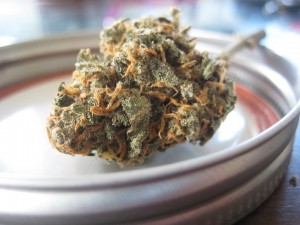 Next year, billions of dollars are expected to flood the California’s marijuana industry when recreational cannabis is made legal. Even so, these businesses will struggle to secure the services they need with their local banks. But why would such a profitable industry with so much potential experience issues securing solutions with a traditional lender?
Next year, billions of dollars are expected to flood the California’s marijuana industry when recreational cannabis is made legal. Even so, these businesses will struggle to secure the services they need with their local banks. But why would such a profitable industry with so much potential experience issues securing solutions with a traditional lender?
During the Obama administration, guidelines were issued by the Justice Department that were intended to help banks avoid federal prosecution when providing services to legal marijuana businesses. However, banks remain unwilling to work with these merchants for fear it will expose them to legal trouble from the federal government. According to The Los Angeles Times, an estimated 70 percent of cannabis businesses have no bank accounts.
As of now, marijuana is still illegal on the federal level; the Drug Enforcement Administration classifies it as a controlled substance with no accepted medical use – listed alongside heroin. Thus, federal government heavily regulates the banking industry. The Justice Department is concerned that profits in legal marijuana states could easily be funneled to gangs are cartel. The rules are supposed to act as a shield for banks, protecting against charges like aiding drug trafficking.
From the banks perspective, it can be difficult to be fully confident in determining a marijuana business’ true intentions. Most banks find it a heavy burden to decide whether the business is operating within the law, and therefore shy away from working with these merchants. The risks are simply too high for financial institutions.
There are a few banks and credit unions who are still willing to handle marijuana business’ money, but very few. In 2015, Colorado tried to set up a credit union specifically for the marijuana industry, but was blocked by the Federal Reserve. In another attempt, the Oregon Department of Revenue created a secure office for these businesses to drop off and count cash.
Overall, this situation has created a very unstable, unsafe atmosphere for legal marijuana businesses to operate in. How many industries involve business people walking around with millions of dollars of cash? To get around this problem, some merchants open bank accounts by setting up a nonprofit organization or management companies with an ambiguous, in hopes of misleading banks.
There are much safer and straightforward options available. An increasingly popular solution to this ever-growing problem is a marijuana merchant account. Alternative providers – like marijuana merchant account, also known as MMA – specialize in providing the payment processing solutions and business funding this industry needs. Depending on the business type, merchants can secure either a recreational or medical marijuana merchant account in as little as 24 hours.
While many are optimistic about the marijuana industries future, for now, the safest options for merchants remain either in cash (still extremely unsafe and impractical) or an alternative solution; such as a marijuana merchant account from a high-risk provider.


 When it comes to the legal marijuana industry, many people assume it’s a small, struggling group of people. While it’s true that the industry has encountered many obstacles and likely has more to face in the future, you might be surprised to hear that the industry is a lot bigger than you previously believed. For example, if your living in one of the legal marijuana states, it might actually be easier for you to find someone to recommend and sell you cannabis than to find a dental hygienist.
When it comes to the legal marijuana industry, many people assume it’s a small, struggling group of people. While it’s true that the industry has encountered many obstacles and likely has more to face in the future, you might be surprised to hear that the industry is a lot bigger than you previously believed. For example, if your living in one of the legal marijuana states, it might actually be easier for you to find someone to recommend and sell you cannabis than to find a dental hygienist. Nevada has joined Colorado, Oregon, Washington and Alaska in becoming the fifth state to open dispensaries to recreational users. The celebration that took place with the legalization July 1st at midnight included DJs, food trucks and long lines. State Sen. Tick Segerblom, the pro-pot legislator who backed both medical and recreational marijuana, was the first the make a purchase.
Nevada has joined Colorado, Oregon, Washington and Alaska in becoming the fifth state to open dispensaries to recreational users. The celebration that took place with the legalization July 1st at midnight included DJs, food trucks and long lines. State Sen. Tick Segerblom, the pro-pot legislator who backed both medical and recreational marijuana, was the first the make a purchase. Many in the marijuana industry were optimistic when they read the recent report from the U.S. Department of The Treasury’s Financial Crimes Enforcement Network (FinCEN). This report revealed a sizeable increase in the number of banks and credit unions providing financial services to legal marijuana business. In FinCEN’s latest Marijuana Banking Update, 368 depository institutions were “actively banking marijuana businesses in the United States” at the end of the first period (March 31).
Many in the marijuana industry were optimistic when they read the recent report from the U.S. Department of The Treasury’s Financial Crimes Enforcement Network (FinCEN). This report revealed a sizeable increase in the number of banks and credit unions providing financial services to legal marijuana business. In FinCEN’s latest Marijuana Banking Update, 368 depository institutions were “actively banking marijuana businesses in the United States” at the end of the first period (March 31). Up until a few years ago the only way to get recreational marijuana was illegally. This benefitted mostly the drug cartels – and honestly, who wants to do that? With the rise of states offering legalized recreational marijuana, the cartels are likely to take a hit – but how much? And will this help eradicate marijuana cartels?
Up until a few years ago the only way to get recreational marijuana was illegally. This benefitted mostly the drug cartels – and honestly, who wants to do that? With the rise of states offering legalized recreational marijuana, the cartels are likely to take a hit – but how much? And will this help eradicate marijuana cartels? With the ever-growing support for legalized medical and recreational marijuana, it is hard to fathom that some states may never legalize one or the other (or both). But, there are 14 states that may never do so. It isn’t the money, per se, but it has a lot to do with politics.
With the ever-growing support for legalized medical and recreational marijuana, it is hard to fathom that some states may never legalize one or the other (or both). But, there are 14 states that may never do so. It isn’t the money, per se, but it has a lot to do with politics. While Iowa has legalized medical marijuana for a few ailments, many are pushing for the legalized limits to be widened. Current Iowa law, signed two years ago by Gov. Terry Branstad and set to expire July 1, 2017, allows Iowa residents to possess and use up to 32 ounces of cannabidiol (CBD oil), a derivative of the marijuana plant, for the sole purpose of treating intractable epilepsy and its side effects.
While Iowa has legalized medical marijuana for a few ailments, many are pushing for the legalized limits to be widened. Current Iowa law, signed two years ago by Gov. Terry Branstad and set to expire July 1, 2017, allows Iowa residents to possess and use up to 32 ounces of cannabidiol (CBD oil), a derivative of the marijuana plant, for the sole purpose of treating intractable epilepsy and its side effects. Marijuana is a big tax builder for California, and some new law changes can make it an even bigger tax booster. The tax in Prop 55 is not new, but is an extension of a temporary tax increase approved by voters in the last election when they voted for Prop 30. Prop 55 would extend that tax by 12 years, but only for
Marijuana is a big tax builder for California, and some new law changes can make it an even bigger tax booster. The tax in Prop 55 is not new, but is an extension of a temporary tax increase approved by voters in the last election when they voted for Prop 30. Prop 55 would extend that tax by 12 years, but only for  Right now only about 5% of the US population can legally light up recreational marijuana. Come Tuesday, the number night jump to over 25%.
Right now only about 5% of the US population can legally light up recreational marijuana. Come Tuesday, the number night jump to over 25%.